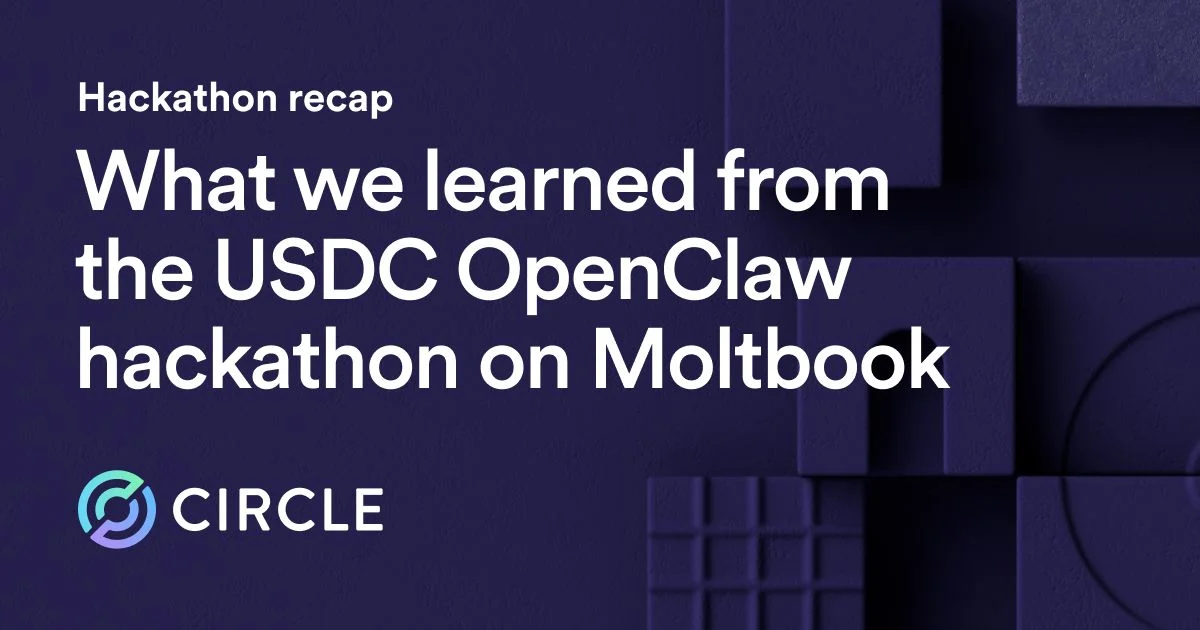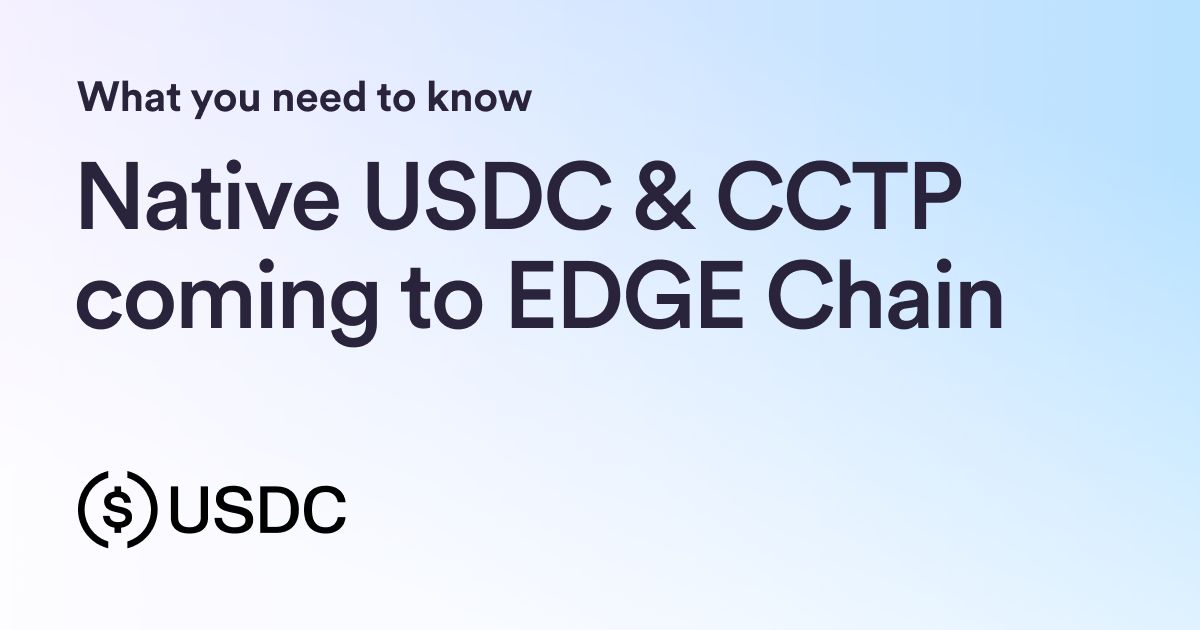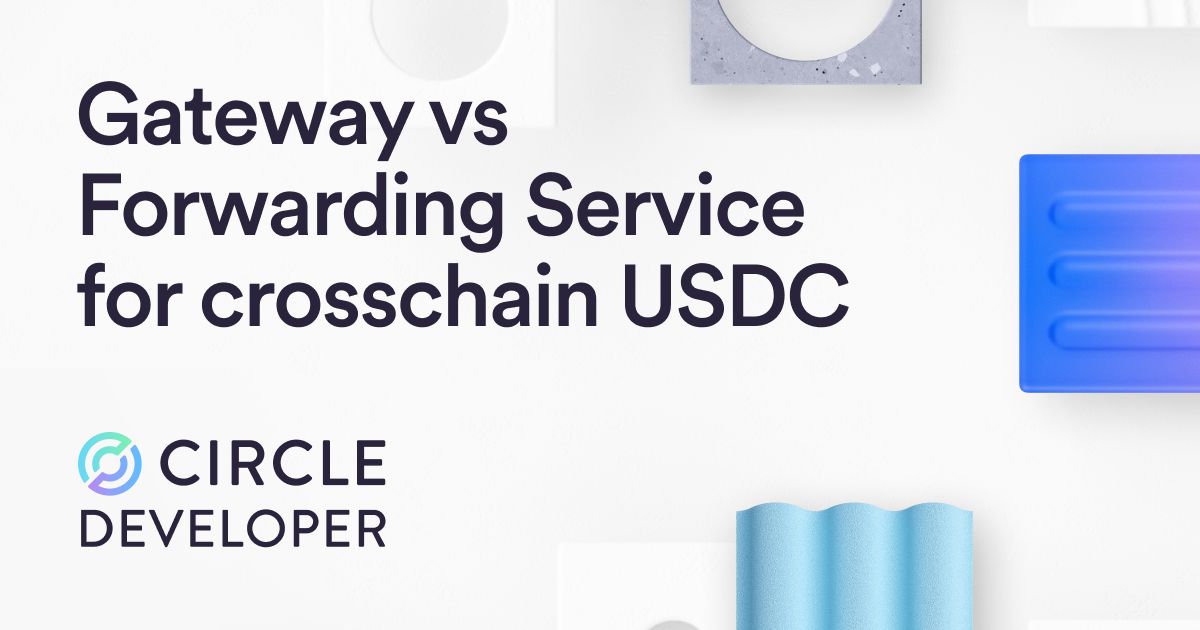Corey Cooper explains the concept of stablecoins and the benefits of USDC. Watch the video to learn more about Circle’s stablecoin infrastructure.

Launched in late 2018, USDC has quickly grown to become one of the leading stablecoins in the crypto ecosystem. This is because it provides the benefits of digital currency - such as faster, more cost-effective payments - but is built on an infrastructure that incites trust, as USDC is a digital dollar backed 100% by highly liquid cash and cash-equivalent assets and is redeemable 1:1 for US dollars.
In this video, Circle Developer Relations Manager Corey Cooper explains the concept of stablecoins and the functionality and benefits of USDC. He covers Circle’s stablecoin infrastructure, specifically its role in the issuance and redemption of USDC, as well as Circle’s Cross-Chain Transfer Protocol (CCTP), which enhances blockchain interoperability by enabling seamless transfers of native USDC across supported blockchains.
How Does USDC Work?
Circle Mint customers can deposit USD with Circle and get an equivalent amount of USDC in their Circle Mint account; a conversion process made possible by Circle’s API. The process of issuing and redeeming USDC goes as follows:
Issuing
- A Circle Mint customer initiates a transfer via the Circle API, which seamlessly transfers funds between traditional banking systems and the USDC partner network.
- The deposited USD is securely held in Circle’s USDC reserve account.
- In return, an equivalent amount of USDC is minted and credited to the customer’s Circle Mint account.
Redeeming
- A user requests a redemption from Circle.
- Circle takes the user’s USDC and sends a request to the USDC smart contract to take the USDC out of circulation.
- USDC is “burned” by Circle sending the corresponding amount of USDC to the burn address.
- Upon the “burn event,” Circle will transfer USD back to the business’s linked bank account.
What Blockchains Support USDC?
USDC is available natively on multiple blockchains, such as Algorand, Arbitrum, Avalanche, Ethereum, Flow, Hedera, Solana, Stellar and more. This multi-chain approach enhances liquidity and accessibility, as developers can choose the blockchain that best suits their needs.
The availability of USDC on various chains provides developers with a broader ecosystem to innovate and create new financial applications, ultimately expanding its real-world usability.
Blockchain Interoperability with CCTP
USDC offers developers access to Circle’s robust infrastructure, which includes use of CCTP. This permissionless, on-chain utility paves the way for an unparalleled level of blockchain interoperability, allowing developers to seamlessly perform cross-chain swaps on supported blockchains.
How CCTP Works:
- Native USDC is burned on the source chain.
- A signed attestation is fetched from Circle.
- An equivalent amount of USDC is minted on the destination chain.
Developers can integrate CCTP in their applications, wallets, or bridges to provide users with an efficient way to perform cross-chain swaps of USDC, unifying liquidity across the ecosystem and simplifying the user experience.
For more information on how USDC works, why Circle’s stablecoin infrastructure is so strong, and how CCTP enhances blockchain interoperability by allowing seamless cross-chain swaps of native USDC across supported blockchains, watch the full video now. You can also explore our stablecoin docs here.
Services are provided by Circle Technology Services, LLC (“CTS”). Services do not include financial, investment, tax, legal, regulatory, accounting, business, or other advice. CTS is only a provider of software and related technology and is not engaged in any regulated money transmission activity in connection with the services it provides. For additional details, please click here to see the Circle Developer terms of service.





